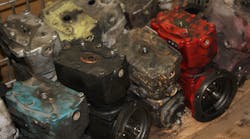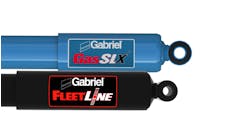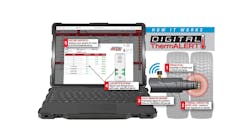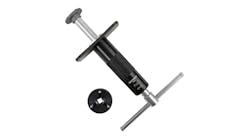While they may sound similar, there is a notable difference between remanufactured and rebuilt components.
The Motor & Equipment Remanufacturers’ Association (MERA) defines remanufacturing, or reman, as: “A standardized industrial process by which previously sold, worn or non-functional products are returned to same-as-new or better condition and performance. The process incorporates technical specifications, including engineering quality and testing standards, to field fully warranted products.”
A remanufactured component is very different than a rebuilt component. A rebuilt component isn’t held to the same standard and processes as the remanufactured component. Rebuilt units tend to have a higher number of used components compared to remanufactured units, which incorporate more new components.
A reputable remanufacturing company ensures that the disassembling, cleaning and replacing of parts, as well as the test and inspection procedures, are all held to a very high standard by replacing all wearable components.
Quality
The remanufacturing process is a very thorough and in-depth practice. Initially, the cores come in and are dissembled, cleaned, machined and rigorously inspected. All reused components must stand on their own merit for reuse. In some cases, a remanufacturer will reengineer failure modes out of products when failures reoccur in the cores; thus, creating a higher quality product.
Cost
On average, remanufactured components lower the acquisition cost of components to the fleet by 30 to 50 percent, compared to similar new products. This decreases the cost per mile for fleets. In addition, the remanufactured warranty is the same or equivalent to warranty on most new products.
Sustainable practices
Global warming is a continued focus of concern for many. Remanufactured products are an important part of recycling. Remanufacturing can help reduce air pollution, save energy, limit the use of natural resources and help reduce the number of components that go to landfills. Fleets who are using remanufactured parts reduce the consumption of natural resources, energy and the emission of greenhouse gases.
Making the decision
Fleet customers who want service life, warranty support and performance in their components at a lower cost should consider choosing quality remanufactured products.
When fleets opt to purchase and use remanufactured components, it is important to look for reputable remanufacture companies that follow OEM specifications and have a well-defined remanufacturing process in place.
The adoption of high standards and policies assists in efficiency and a consistent, durable product.
Tim Shaw is the remanufactured national sales and product manager for Haldex Brake Products. He has more than 25 years of heavy duty industry experience with Haldex in product management, sales and technical services.




